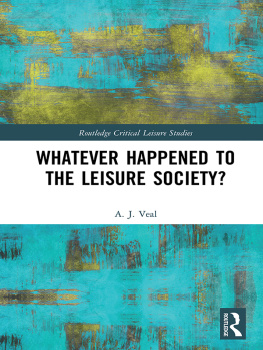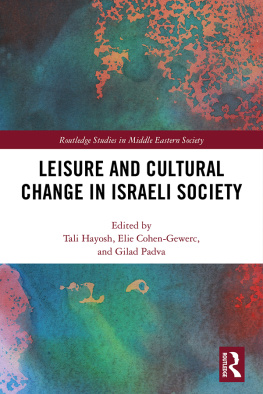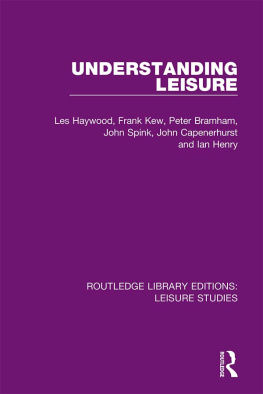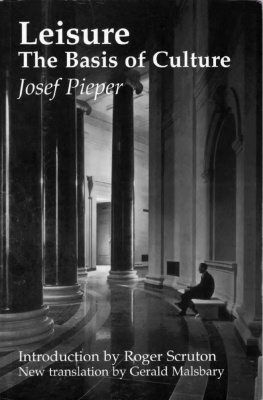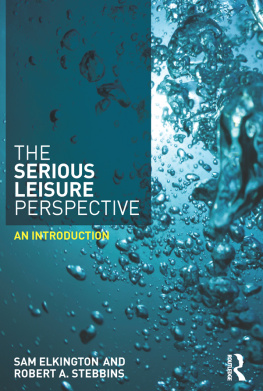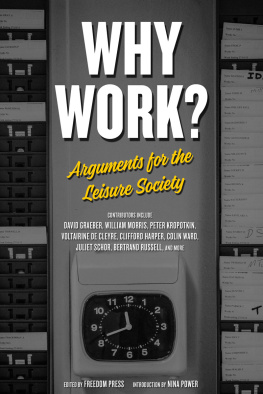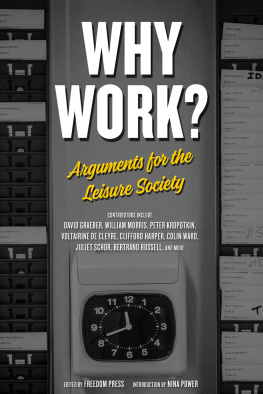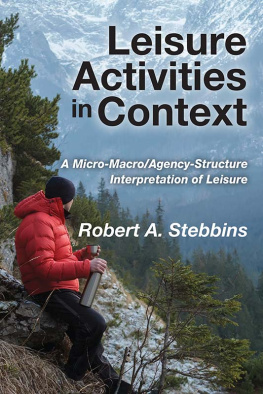Whatever Happened to the Leisure Society?
The idea of a leisure society was in its heyday in the 1960s and 1970s, when it was predicted that the pattern of falling working hours which had been experienced in Western societies in the first half of the twentieth century would continue indefinitely. The leisure society has clearly not been realised. On the contrary: contemporary industrial societies seem to be characterised by a shortage of time, experienced as time squeeze and stress. The leisure society idea can be seen as the modern version of the age-old dream of a life of ease and plenty.
This analytically and empirically rich book traces the idea in history, through biblical, classical Greek, medieval and nineteenth century utopian writings and into twentieth century concerns with dystopia and the impact of rapid technological change. The leisure society concept turns out to have been an elusive and short-lived phenomenon. For a variety of reasons, the trend towards shorter working hours ran out of steam in the last quarter of the twentieth century. However, while leisure scholars have deserted the topic, a diverse range of activists, including environmentalists, economists and feminists, continue to make the case for reducing working hours. Whatever Happened to the Leisure Society? concludes that the ongoing struggle for time should be supported, for the sake of human health and well-being and for the sake of the planet.
This is a valuable resource for students and academics in the fields of leisure studies, cultural studies, history, economics, sociology and political science.
A.J. Veal is Adjunct Professor in the Business School, University of Technology Sydney, Australia. He is past President of the Australian and New Zealand Association for Leisure Studies (ANZALS) and former Chair of the Leisure Studies Association (UK).
Routledge Critical Leisure Studies
Series Editor Tony Blackshaw
Sheffield Hallam University
The modern world is one that holds an intense fascination with the activities we place under the heading leisure. Rather than simply being the opposite of work, leisure today can be seen as a form of social and cultural life in which work and leisure intersect and mutually inform one another.
This series is a forum for agenda-setting research that examines our contemporary world of leisure. It places a strong emphasis not only on mapping current developments in individual and collective leisure activities, but also on challenging our understanding of these from different perspectives. Providing detailed empirical and theoretical accounts, this series explores the critical issues that underpin peoples leisure lives at the beginning of the twenty-first century.
While this series is devoted to leisure, many of its books touch on other subject fields, contributing to interdisciplinary studies and appealing to readers from across the social sciences and the humanities.
Available in this series:
1 Re-Imagining Leisure Studies
Tony Blackshaw
2 Philosophy of Leisure
Foundations of the good life
Johan Bouwer and Marco van Leeuwen
3 Feminisms in Leisure Studies
Advancing a Fourth Wave
Edited by Diana C. Parry
4 Whatever Happened to the Leisure Society?
A.J. Veal
First published 2019
by Routledge
2 Park Square, Milton Park, Abingdon, Oxon OX14 4RN
and by Routledge
711 Third Avenue, New York, NY 10017
Routledge is an imprint of the Taylor & Francis Group, an informa business
2019 A.J. Veal
The right of A.J. Veal to be identified as author of this work has been asserted by him in accordance with sections 77 and 78 of the Copyright, Designs and Patents Act 1988.
All rights reserved. No part of this book may be reprinted or reproduced or utilised in any form or by any electronic, mechanical, or other means, now known or hereafter invented, including photocopying and recording, or in any information storage or retrieval system, without permission in writing from the publishers.
Trademark notice: Product or corporate names may be trademarks or registered trademarks, and are used only for identification and explanation without intent to infringe.
British Library Cataloguing-in-Publication Data
A catalogue record for this book is available from the British Library
Library of Congress Cataloging-in-Publication Data
A catalog record has been requested for this book
ISBN: 978-1-138-28964-2 (hbk)
ISBN: 978-1-315-26709-8 (ebk)
To the memory of Tom and Audrey Veal
My interest in the future of leisure developed in the 1970s, when I was working in the Centre for Urban and Regional Studies at Birmingham University and obtained a small grant from the then Social Science Research Council to conduct a formal leisure demand forecasting exercise using some of the early British leisure participation survey data. The results were published in an article (Veal, 1980) and also appeared in a more wide-ranging book, Leisure and the Future (Veal, 1987: 152). For the next 20 years my interest in the topic was limited to my teaching and the inclusion of a chapter in a policy-related textbook, now in its fourth edition (Veal, 2017). My renewed interest was sparked in 2007 by the prospect of attending a Leisure Studies Association conference in Brighton, with the title: Whatever Happened to the Leisure Society? The conference website stated:
Cultural pundits and social scientific forecasters of the earlier post-war period heralded leisure as a form of utopian progressiveness, and predicted a decline in work and the benefits accruing from traditional work activities, alongside an increase in the aspiration to achieve personal, relational and cultural satisfactions in and through leisure.
My own contribution to the conference was a parallel session presentation on Working Hours and the Desire for Leisure and Consumption, which was related to the conference theme because it dealt with the historical trade-off between work-time and leisure-time. However, while the conference was enjoyable enough as a general leisure studies conference, I was disappointed to find that, with one exception, a paper by Peter Bramham (2008), and some passing comments in the final panel session, no other presentation at the conference dealt with the conference theme.
When I returned to Australia, Simone Fullagar, the editor of the ANZALS (Australia and New Zealand Association for Leisure Studies) members newsletter, asked me to write a short account of the conference. This was my opportunity to make public my disappointment with the conference content. However, I thought I should first refresh my memory as to who had said what in the 1960s and 1970s, when the idea of the leisure society was being discussed and promoted in the literature. I was quite surprised to find that my own recollection of who indeed had said what was inaccurate, in a variety of ways. I recorded my findings in my piece for the newsletter, but it ran to 4,000 words: far more than the editor needed! We agreed that it should be edited down to a more reasonable length and it appeared in the newsletter as a think piece (Veal, 2007). I continued to explore the leisure society-related literature and compiled a series of quotations and some analysis in a working paper, which I published online (Veal, 2009). I was surprised to find how inaccurate and incomplete the typical references to the history of the leisure society idea were in the current leisure studies literature. There it rested until an article by Cara Aitchison (2010) appeared in the

